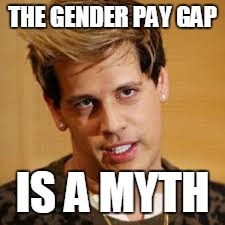Readers, please take note that this article is a collaboration between Micaiah and Jael the wife of Heber. Any resulting abuse in the comment section should therefore be split evenly between the two.
1. Anti-Semitism
What do you do with the Jew?
This is not a new question. Hatred of the Jew is as old as the hills. Their ceremonial law kept them apart, eating different foods and following different cultural practices. They stubbornly refused to assimilate. During the Black Death, they were accused of causing it, because they did not get sick. Their ceremonial laws turned out to have some quite hygienic practices in them.
You ban them from owning property, and they go and become moneylenders. Annoyingly, they’re good at it. So there you get the stereotype of the miserly Jew, insisting that you pay back your debt. Who likes a creditor? Besides, the thought of the shekels recalled Judas’ betrayal of Jesus for thirty pieces of silver. Weren’t the Jews responsible for his death?
Not only that, but they wouldn’t convert. You’d think it would be so simple. They were waiting for their Messiah, well, he had already come. All you had to do was to explain it to them, and surely they’d get it. But they didn’t. Neither did they take kindly to being baptised by force.
What do you do with the Jew?
You hold ‘disputations’ and force him to debate the comparative truth of your respective religions. In such a debate, of course, it is considered good form for the loser to convert. But when he loses, the Jew makes all sorts of difficulties about this. And sometimes he even turns out quite adept at arguing … and that kind of thing is just embarrassing.
What do you do with this race of recalcitrant outsiders, dwelling obstinately apart?
Well, I’ll tell you what you do. There’s one thing that Jews are good for: they’re really good for taking the blame. They make great scapegoats. Hey, even the idea of the scapegoat comes from Jewish law. You choose your animal by lot, load it up symbolically with the sins of all the people, and send it out into the wilderness. It’s so good to have one thing to attach your problems to. You fix them to your scapegoat, clap your hands and drive it away.
That scapegoat is the Jew. It’s not new, or modern, or edgy, to hate the Jew. That hatred is as old as the hills, and it’s still with us.
Suppose that your society is in decline. You’re fighting the Marxist and the communist, and the problem is endemic. Most people don’t see the problem, though, and they look at you like you’re crazy for talking about it. But you can hear civilisation cracking and crumbling around you. (Or perhaps it isn’t the Marxists, perhaps it’s the reparations for a world war combined with a massive economic depression that’s getting you down.) Regardless, sometimes you just need a scapegoat.
So you take the Jew. You load him up with all your troubles – he caused them all! He can take responsibility. You put his face on every one of them, drawing him with a long hooked nose and maybe a bag of shekels. With the problem externalised, the solution becomes much more manageable. Now the scapegoat is loaded up, and you send it out into the wilderness, alone. You banish it, exclude it, mock it, meme it, ridicule it. Maybe even gas it. You live in hatred of the ‘Talmudic tapeworm’, and you identify yourself by that hatred, calling yourself goyim – non-Jew. You drive that scapegoat so far away from you that it’s nothing more than a blot in the distance.
That’s what you do with the Jew.
2. – A Few Words On the Marxist
No doubt you are familiar with Marxism – the poisonous philosophy of envy that extends its tentacles into the minds of university-aged people and sucks out their brains, leaving them condemned to a life of mindless moaning for the wallets and brains of the productive.
Marxists are bad at handling data.
They don’t ask how or why things came to be that way, or how it works. All they look at is the surface-level facts. The Marxist looks at a functioning economy, scratches his chin and observes, “I see more money over there than over here. There can be only one explanation: I am being oppressed! There can be only one solution: revolution.”
He then calls for the workers to seize the means of production. Several million deaths later, everyone realises the error. Everyone, that is, except the Marxist himself. He says the concept was amazing but the execution was suboptimal. Next time will be different.
Marxism respawned after WWI, metastasising into what is known as cultural Marxism. It retained the key element of class struggle, but replaced the proletariat vs. bourgeois paradigm with one in which groups that claim victimhood – women, LGBT, ethnic minorities – struggle forever against their ‘privileged’ oppressors … the BLEEPING WHITE MALES.
This is what is known as identity politics. It understands humanity only in terms of group membership, rather than on an individual basis. The Marxist is bad at understanding individuality or individual choice, because those have no place in their paradigm.
That’s why it’s a big deal to ‘lose your victim card’. A gay man with conservative opinions might be told that he is no longer part of the gay community, or a woman who attends a Milo talk may be called a ‘gender traitor’. (And of course, there’s a special place in hell for women who didn’t vote for Hillary.) The loss of the victim card subtracts from them their ability to channel the legitimacy of their group identity in support of their aberrant ideas.

All women are supposed to be third-wave feminists. Didn’t they get the memo? Or, as Milo puts it, “people like are supposed to be good little metropolitan fags and vote Democrat”. Your group membership is meant to be your worldview.
Now, the cultural Marxist shares the same surface-level understanding of reality as the economic Marxist. They both like distribution, and they like equality, which to them means ‘sameness’. The economic Marxist likes everybody to have exactly the same amount of money, regardless of risk, initiative, enterprise or ability. (If you have ever served dessert to children, you will understand Marxist theory: “if that other child has even a few grams more ice-cream than me, only a giant temper tantrum will fix this grotesque inequality.”) The cultural Marxist likes all the minority groups to be equally represented across society. If it is the case that 50% of all living breathing human beings are women, then 50% of all desirable jobs must be held by women. Otherwise a gross injustice has occurred, that can only be explained by sexism and oppression on an enormous scale. The same goes for all other minorities and protected classes.
However, we know reality is not so mono-dimensional. There are at least two other good reasons that equality of opportunity might not translate to equality of outcome, even in the absence of systemic oppression. The first is individual choice. As different people are, well, different, they may at times make different choices. They’re not beholden to live their lives in a way that will make the data line up in nice, symmetrical patterns. Humans just aren’t like that, and only an overgrown child with an obsessive-compulsive God complex would think they are. But when you think of people as collective identities rather than individuals, this point tends to slip through the cracks.
The second is inherent difference. Now, this is not supposed to exist in a Marxist world. Like I said – they love equality, and equality to them means ‘sameness’, in every respect. But reality disagrees with them on this, because men and women aren’t interchangeable. There’s a difference between men and women. This being your XYZ, I doubt I need to labour the point. Suffice it to say that inherent differences between the sexes translate to differences that show up in the stats.

I’ll go one step further, and suggest that if there are inherent racial differences, these might show up in the stats as well. If one ethnic group is overall different to another, one might see them take different kinds of jobs, performing in the workforce differently and/or better than the norm.
Now hold these thoughts for further reference:
- The Marxist has a shallow understanding of reality that examines the facts as they stand, but not how or why they came about. This is an enormous logical weakness.
- The Marxist insists on carbon-copy equality (sameness) of ethnic and gender distribution in the workforce, and thinks any inequality in this regard is not just an economic problem, but an issue of morality.
- Inherent differences between the genders and even the races might confound this theory.
- Equality of opportunity, all other things being equal, will lead to inequality of outcome. This is not a bad thing. It is only a problem if one thinks that equality ought to mean sameness, in every respect, at all times.
- The Marxist does not recognise individuality. For the Marxist, thought and (collective) identity go hand in hand.
3. – Getting To the Point
This is the argument which is used to justify antipathy toward the Jew.
“The Jew is over-represented in nearly any position of influence. He worms his way in, while unable to assimilate due to his excessive tribal loyalty. He uses his influence to infiltrate and destroy his host society, like a parasite in the gut of a dog. Anywhere, at the coalface of social destruction, you will find the Jew. Coincidence? I think not.”
Let us address these points. Firstly, it is true that ‘the Jew’ is over-represented. There are more Jews in the most successful ranks. Roughly 20% of Nobel Prize winners are Jews, and 20% of the top fifty billionaires. There are many Jewish authors and Jewish philosophers and thinkers. Across these categories, Jewish people tend to appear more than other groups.
They sure are successful. Plus, they score higher than average on IQ tests.
This alone ought not to be a problem. To say that “Jews have too much money” is like saying “men run too many companies”. One might make a more solid argument by saying that Jews are infiltrating, or that they use their intelligence and successfulness for social destruction and evil. Let’s examine the issue of human evil and moral agency.
The Problem of Human Evil
This is not a new question. Christian theologians have pondered for centuries the existence of evil. Why is there evil? And why would God create a world where evil could happen?
Let’s unpack it. As humans, we were originally created good, and not evil. God created everything good. Forget about the whole yin-yang ‘balance of the Force’ idea – evil is not a separate and equal force in its own right. Evil is a perversion of the good that came after. If good is a healthy body, then evil is the disease. Good can exist independently, but evil cannot.
If evil is a perversion of the good, then the higher the good, the higher the potential for evil should that good be perverted. Think of the devil, originally the highest of the angels, until he “fell like lightning from heaven”.
So what about human evil?
Humans were created “a little below the angels”, created with moral agency. This is a good thing, not just because we all like being able to make choices for ourselves. As free moral agents, we were created with the ability to choose the good, to worship God freely, as children rather than robots. This moral agency is a very high good, but conversely, a high potential for evil should that good be perverted. It was… and that’s the story of humanity.
It’s not possible to reduce the risk of evil without also reducing the good. It would have been safer to create a race of pet rocks – no danger there of disobedience, rebellion, perversion, evil. A pet rock always behaves beautifully, you know. Never runs away. Never talks back. But then again, it won’t love you freely and not under compulsion. It won’t be company. It won’t be like a son or daughter to you. You’ve stripped away that good along with the risk of evil.
God chose for us the greater good and the greater risk.
Now, we know that the Jews are highly intelligent. This intelligence has all the moral status of a firearm. It can be used for good or evil, depending on the inclinations of the moral agent wielding it. And as humans, as free moral agents, we can’t ultimately constrain the choices of others.
Therefore the Jewish problem – what do you do with intelligent people who might use their intelligence for evil? – that problem is not the Jewish problem alone, but also the human problem.
Jews and Destructive Ideas
Jews have contributed many things to the world, many scientific discoveries and many ideas, both good and bad. Polio vaccine was invented by a Jew, Jonas Salk. Sigmund Freud was a Jew. Einstein was a Jew, and so was Herbert Marcuse of the Frankfurt school. Seth Rich, the one who leaked John Podesta’s emails to Wikileaks, was a Jew, and had he not done so, Lady-President Clinton would most likely be a year into her first term by now.
I could go on, but you get the gist. Jews have a lot of ideas, as you’d expect from a race of high achievers. Some of these are beneficial (thank you, Salk and Rich), and some of them are destructive (thank you, Freud and Marcuse).
Isn’t this what you’d expect from humans, who, as I just argued, have a mix of good and evil in their hearts, and a dash of moral agency to top it off?
It doesn’t take much work to present data showing a disproportionate amount of bad ideas from Jews. If they are intelligent and successful, you’d expect a disproportionate amount of ideas, both good and evil. It doesn’t mean that they’re more depraved because they’re Jewish. As I argued, ‘the Jew problem’ is actually the human problem.
The anti-Semite, however, assumes that when a Jew has a terrible idea, he does not act as an individual, but according to the dictates of his race, which tell him to subvert and destroy the ‘goyim’.
Do you recall those dot-points I made about Marxism a few paragraphs ago? Marxism tells us that ideas and group identity go hand in hand, and that your gender/ethnicity is, or ought to be, your worldview.
From group identity, they assume ideas.
The anti-Semite operates on the same principle, albeit in reverse. From the ideas and actions of the individual, they assume things about the group to which they belong.
“You, as a Jew, had a bad idea. This must be due to your group identity, therefore I infer that your Jewish group identity impels all its members to have bad ideas.”
Perish the thought that any individuality informed their actions. Perish the thought that ideas and group identity are not synonymous. Those who make this argument are thinking like Marxists, because they are operating on the same basic assumptions.
The Line Separating Good and Evil
I’ve been using the phrase ‘the Jew’ throughout this article for rhetorical purposes, in spite of its collectivist connotations. Hopefully you understand the dehumanizing effect of the collective indefinite article after having seen it applied to a group other than Jews. But now the argument is made, it’s time to stop separating ‘the Jew’ from the rest of humanity. It’s time to stop creating an artificial ‘us and them’, because Jewish nature is not fundamentally different to the nature of any other group of human beings. Have we good in us? So have they. Have we evil in us? So have they.
We cannot justly use the Jew as a scapegoat for all our problems, because we are fundamentally the same. As Alexander Solzhenitsyn wrote in Gulag Archipelago, “the line separating good and evil passes not through states, nor between classes, nor between political parties either – but right through every human heart – and through all human hearts.”
That line does not run between Jew and goyim, but down the middle of each and every human heart.
The Solution
Perhaps you will say to me, “What’s your solution, then? We have ours right here – we want to oppose the Talmudic scum in order to save our society. But you’re arguing against it without a credible alternative.”
I admit: I do not have a neat plan to solve all the ills of our modern society. I have no solution to the Jew problem, which is the human problem – human evil.
Of course, God does have a solution. He sent his own Son to die for it, and one day he will destroy every last trace of evil from existence, and re-create the lot, perfect. It’s not what the atheist imagines when he asks, “But why doesn’t God DO something about all the evil in the world?” … but God is, and he will. We like to imagine that evil is something found exclusively outside of ourselves.
God is taking his time, however, and until then, we must acknowledge the basic truth that not all problems can be fixed. While there are ways of fighting human evil, there are no silver bullet solutions. It’s tricky and we’re not able to solve it completely.
You might say to me, “Well, if that’s all you’ve got, I’ll do it my way. Thanks anyway.” I can’t stop you, as you are an adult and a free moral agent (see what I did there?), but I do maintain that a terrible unjust solution is not an improvement on having no solution. To scapegoat the Jew is an example of a terrible solution. Besides being unjust, it’s also unfounded, and the starting point for any solution is an accurate understanding of reality.
For those interested in fighting the culture wars, however, and seeing truth and justice prevail over the shrieking hordes, I do have one suggestion. It isn’t a complete solution, but it’s a baby step towards one. Do you want to fight cultural Marxism? Then let’s start at home, with the very simplest of steps: don’t be a Marxist yourself!
The basic assumptions of the anti-Semite are those of the Marxist, and the man with the revolutionary beard would approve.
✓ Collective identity trumps individuality
✓ Hates successful people for being successful (Jews)
✓ Bad with stats, has surface-level understanding of reality
✓ Wants ‘equality’ of distribution and thinks inequality (Jewish success) disturbing
You can’t be a fair-weather capitalist. Either you believe in freedom or you don’t. You can’t be a capitalist when it suits you and run to the comforting arms of Marx as soon as you see somebody else doing it better than you.
Darth Marx never worked a day in his life, and he never saw the inside of a factory. Instead, he mooched off his friend and benefactor Friedrich Engels. How did Engels produce enough to support himself and Marx’s (extensive) family? Good question… Engels owned a factory, and the profits supported Marx’s family and his own. Marx refused to visit the factory when invited. But he took the money. His livelihood came directly from profit, which, according to him, can only come from the oppression of the workers.
Even Marx himself was only a Marxist half the time. If you are a capitalist when it suits you and a Marxist when it doesn’t, you’re not just an inconsistent capitalist: you are following in the footsteps of Karl Marx himself.
As the good book says, “you say to your brother, come, let me remove the speck of Marxism from your eye, but behold! There is Marx and his entire family camping out in your own eye. You hypocrite! First remove Marx and his entire family from your own eye, and you will see clearly to remove the speck of Marxism from your brother’s eye.” (Matthew 7:3-5, Micaiah Imaginative Version)
Stop thinking like Marxists, you goys.
It’s your XYZ.












